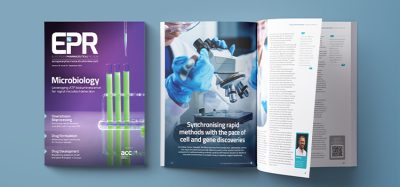NICE partners with health technology assessment bodies
Posted: 13 October 2022 | Catherine Eckford (European Pharmaceutical Review) | No comments yet
Five health technology assessment (HTA) bodies will collaborate with NICE to help resolve regulatory and digital health technology challenges.


The National Institute for Health and Care Excellence (NICE) is set to work with five health technology assessment (HTA) bodies to find solutions to common challenges in the sector, such as working with regulators and evaluating digital health technologies.
In addition to NICE, the bodies involved are:
- Canadian Agency for Drugs and Technologies in Health (CADTH)
- Australian Government Department of Health and Aged Care
- Healthcare Improvement Scotland
- Health Technology Wales
- All Wales Therapeutics & Toxicology Centre
Five areas of priority
The first focus will be to improve how work related to COVID-19 is handled: interactions with regulators, prioritising topics, managing medicines with no marketing authorisation, planning for HTAs and economic modelling methods.
The groups will discuss how HTA processes could enhance how current technological and methodological problems resolved before a HTA is done. The bodies will work collectively on scientific and methodological topics to address these difficulties.
Attention will also be placed on regulatory collaborations. Agencies from the UK, Canada and Australia will seek opportunities to improve HTA and regulatory relationships.
The parties will assess if sharing HTA information is beneficial and investigate whether running a pilot for a joint clinical assessment will prove useful.
Information about advances in evaluating digital health technologies such as AI will also be distributed between the organisations.
The bodies will meet four times per year to communicate progress related to their activities. Additionally, all members will attend an annual meeting to review achievements and identify goals for the upcoming quarter and beyond.
Head of international affairs at NICE, Meindert Boysen explained that by working together, the HTA community and NICE can better anticipate, recognise and respond to the major opportunities and challenges surrounding innovations in science and healthcare.
Boysen added, “After years of successful informal collaboration, I am excited that we have now formalised our partnership with key members of the global HTA community.”
Related topics
Biopharmaceuticals, Data integrity, Regulation & Legislation, Research & Development (R&D)
Related organisations
All Wales Therapeutics & Toxicology Centre, Australian Government Department of Health and Aged Care, Canadian Agency for Drugs and Technologies in Health (CADTH), Health Technology Wales, Healthcare Improvement Scotland, The National Institute for Health and Care Excellence (NICE)









